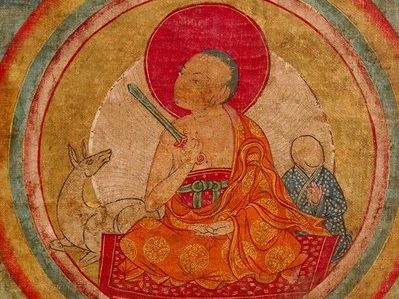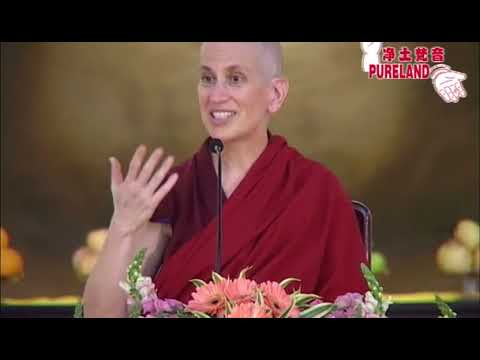Making life meaningful
This talk was given at at Kong Meng San Phor Kark See Monastery in Singapore.
Letting go of disturbing emotions
- Factors of a meaningful life
- Letting go of disturbing emotions to live a more meaningful life
Living a Meaningful Life 01 (download)
Factors for living a meaningful life
- Living an ethical life
- Developing a kind heart
- Purifying negativities
- The activities of hearing, thinking, and meditating
- Relying on a qualified spiritual teacher
Living a Meaningful Life 02 (download)
Questions and answers
- Helping someone with low self-esteem
- Benefiting others
- Liberating animals
- Competition and reaching our potential
- Cultivating contentment
- Making prayer requests
- Why future lives are important
Living a Meaningful Life: Q&A (download)
Excerpts from Making life meaningful
Does complaining make us happier?
Somehow, we feel that if we complain, we’re going to be happier. Are we happier when we complain? No. Are the people around us happier when we complain? No. They’re more miserable. When we live with people who are more miserable, are we happier? No. So actually, when we complain, we become more unhappy.
We love blaming others
We love blaming other people, don’t we? We come to a Buddhist talk because we’re hoping that the Venerable will teach us better ways to get other people to change.
“Me—why should I change? I’m wonderful! All the harm is due to other people. So please teach me how to make other people change!”
Can we ever control what somebody else does? Forget it! We have a hard enough time controlling ourselves, let alone control other people. Rather than spend time blaming and criticizing other people, it is much better if we focus the attention inward and think, “What can I do to make my own mind happier, so that I’m a more pleasant person to live with?”
Developing a kind heart
Develop an attitude that is friendly, kind and wishes other people well. Instead of competing with other people, we wish them well. I think if we want to develop a kind heart, we have to stop comparing ourselves with other people and stop teaching our children to compare themselves with other people. We have to understand and teach our children that each one of us has our own unique talents and abilities. Each one of us has the Buddha nature, therefore each one of us is valuable. We don’t need to get the best results in class; we don’t need to get the award at work; we don’t need to get the promotion. What’s more important is that we have a kind heart and that we use whatever talents and abilities we have for the benefit of others.
Being kind doesn’t mean you have to do something difficult. Being kind doesn’t mean being fussy—making a lot of fuss over this and that person. Sometimes being kind to somebody means just smiling at them. Sometimes it means sharing a moment of silence, without filling the silence with a lot of chatter. Sometimes it means helping somebody carry something. As we’re going about our everyday life, there’re so many small ways to put kindness in the world, to put kindness in our own hearts, and these make our lives very, very meaningful.
When our life is meaningful, dying becomes so relaxing
The thing is, if we make our life meaningful now, then when the time to die comes, we’ll be so relaxed. Why? Because we don’t have any regrets. We’ve forgiven the people we need to forgive. We’ve apologized to those we need to apologize to. We aren’t harboring regrets for the decisions we’ve made in our life. Even if we had made bad decisions, we have purified them and let go of any regret that we’ve had. If we can die with this kind of mind, then dying just becomes so relaxing.
Contemplate, set priorities and practice
These are some ways to make our life meaningful. What I’m doing here at this Dharma talk is to give you a little inkling, a little sprinkle of something. It’s the tip of the iceberg, so you have to go home and think about this more deeply. And then, based on what you’ve thought, set your priorities in your life very clearly. Take time making your decisions, and make wise decisions. If you have made unwise decisions, clean it up, let go and don’t feel guilty.
Each one of us is responsible for our own lives. I can give you some suggestions, but you need to go home and think about them and put them into practice.
Low self-esteem
Another thing I would tell a person with low self-esteem is to cultivate a kind heart towards others.
Now, you’re going to say, “Wait a minute! How can a person cultivate a kind heart towards others if they don’t like themselves?” Well, very true. So you have to like yourself.
But also, I think what happens when people have low self-esteem is that they are spending too much time thinking about themselves. When we have low self-esteem and keep blaming ourselves, we are playing this record in our mind, “I do everything wrong. I’m a failure. I’m no good at this. I’m no good at that.” We tell ourselves this story all the time. We waste so much time and energy thinking that the story is true when it is not.
Instead of spending so much time being depressed and insecure, stop thinking about ourselves so much and go out and be of benefit to somebody else. Go out and act with a kind heart. If we put our attention on the welfare of other people, then automatically we’re going to be less ego-sensitive. We’re going to feel better about ourselves because we’re contributing to the welfare of others.
Working for others’ welfare doesn’t mean we need to all go out and be Mother Teresa, because there is only one Mother Teresa. But it does mean that we do whatever we can to extend our help and kindness to others, and this will in turn improve our self-esteem by that much more.
There’s no such thing as a ‘good’ person or a ‘bad’ person
There’s no such thing as a ‘good’ person or a ‘bad’ person. Why? Because all people have the Buddha nature. Everybody is equal in having the Buddha nature, so I don’t think you can say somebody is a bad person. And if you look at all of us, we all do some good actions and we all do some bad actions, don’t we? Except for the Buddhas and the high level bodhisattvas, who don’t create any negative karma, the rest of us commit a mixture of good and bad actions.
Animal liberation
If you can stop eating meat, then you are really saving lives. Oh, now you don’t like me. [Laughter] But my question to you is—when you eat meat, fish or chicken, you’re eating somebody else’s body for lunch—do you want somebody else to eat your body for lunch? None of us wants anyone to say, “Oh, you look so delicious; I want to eat you for lunch!” If we don’t want other people to eat us for lunch, then maybe we should treat other living beings with that same respect and not eat them for lunch.
Venerable Thubten Chodron
Venerable Chodron emphasizes the practical application of Buddha’s teachings in our daily lives and is especially skilled at explaining them in ways easily understood and practiced by Westerners. She is well known for her warm, humorous, and lucid teachings. She was ordained as a Buddhist nun in 1977 by Kyabje Ling Rinpoche in Dharamsala, India, and in 1986 she received bhikshuni (full) ordination in Taiwan. Read her full bio.


